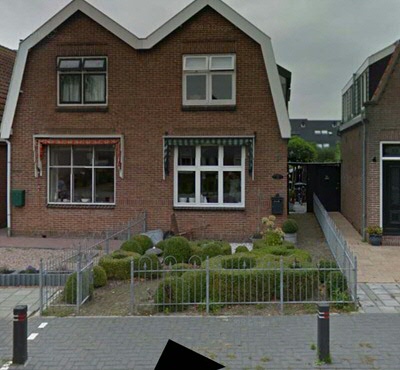Citizens grabbing municipal land is a major problem
Hundreds of thousands of households in the Netherlands are probably illegally using municipal land. That is the conclusion drawn by Björn Hoops, researcher at the Faculty of Law of the University of Groningen. He believes that the law needs to be amended to prevent the loss of government land and to avoid conflicts. Hoops’ report entitled Landjepik in Nederland (‘Land Grabbing in the Netherlands’) will be published this week.
Hoops studied the illegal use of municipal land in five Dutch municipalities. The use is considered illegal when citizens don't own the municipal land and haven't made any arrangements with the municipality involved. Hoops was able to determine the frequency of land grabbing in four of the five municipalities studied. Figures show that the number of households involved in land grabbing varied between 8 and 80 percent in those municipalities. *) ‘Municipalities fail to meet their obligations to protect their property on a large scale. Suppose that the lowest figure mentioned above were the national average; it would mean that at least 600,000 households (1,320,000 people) nationwide were using municipal or other government land without making any arrangements.’
Garden extension by more than 400 m2
In almost all cases, people are using municipal land to extend their gardens, driveways or houses. Not only municipal green spaces, but also pavements, low-traffic residential areas, cycle lanes and public roads are being turned into private gardens on a large scale. This amounts to between 20 and 45 m2 per case on average, with peaks of over 400 m2 in some cases.

Losing ground and money
Dutch law allows users of other people's land to become owners of that land. This includes municipal land. Even if the land was stolen on purpose, users can become owners after 20 years, leaving municipalities empty-handed. First, the land loses its public function and subsequently, the municipality loses ownership. A large number of municipalities have started making an inventory of their land, spending tens of thousands of euros on registering and approaching illegal land users, at a cost of between € 500 and € 850 per case.
Threat to traffic safety and maintenance
Since the land has become part of the private sphere of citizens, emotions often run high, making conflicts between municipalities and citizens all the more likely. ‘What is also causing problems, and may become even more problematic in the future, is that verges and pavements are very important for traffic safety and the maintenance of cables and utility pipelines’, says Hoops. ‘In addition, the loss of public land can delay the implementation of important housing projects or make them unnecessarily expensive. The creation of a geothermal network or the installation of charging points for electric cars near parking spaces may be affected, for example.’
Legal amendment
Hoops believes that an amendment to the law is worth considering, so as to prevent the loss of public land and avoid conflicts. ‘There are several options to ensure continued municipal access to land with a public function. The legislator could exclude these lands from acquisition by lapse of time, as is indeed the case in Belgium, France and Italy.’
*) Municipalities that did not cooperate fully but did provide overall figures showed similar percentages. The percentages of land grabbers vary significantly across municipalities due to different levels of enforcement, the layout of residential areas and the original functions of the land.
More information
More news
-
08 December 2025
Colourful Characters: Bert Röling
